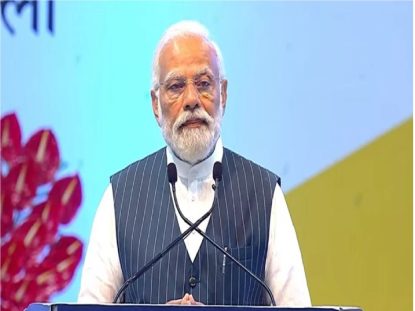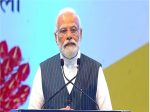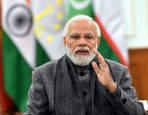
Rolling 50/30 day cycles of lockdown, relaxation can help manage COVID-19, sustain economy: Study
Team Udayavani, May 20, 2020, 1:06 PM IST

image for representation
London: Scientists, including one of Indian-origin, have shown that an alternating cycle of 50 days of strict lockdown followed by 30 days of easing can effectively reduce the number of COVID-19-related deaths, and lower admissions to intensive care units in hospitals.
Since no effective treatments or vaccine for COVID-19 is available, reducing virus transmission via measures like isolating suspected infected individuals, school closures, and lockdowns are crucial, according to the researchers, including Rajiv Chowdhury from the University of Cambridge in the UK.
While such measures are effective at slowing disease spread and preventing health systems becoming overwhelmed, they can also lead to job losses and social disruption, noted the study, published in the European Journal of Epidemiology.
The scientists said there is growing concern that these interventions may be unsustainable over the long term.
Hence they suggested an approach of alternating stricter measures with intervals of relaxed social distancing.
They said this strategy could be enforced with measures of effective “test-contact trace-isolate”, and shielding of the vulnerable kept in place.
In the study, the scientists assessed the difference in impact between strategies aimed at mitigation, and those aimed at suppression.
Mitigation measures like physical distancing, hygiene rules, case-based isolation, restricting of large public events, and school closures, can reduce the number of new infections, but at a relatively slow rate, they explained.
On the other hand, the study said suppression measures can lead to a faster reduction in the number of new infections by applying additional interventions like lockdown.
In the first scenario, they modelled the impact of imposing no measures and found that the number of patients requiring treatment in intensive care units (ICUs) quickly exceed the available capacity significantly for every single country, including India.
According to the study, this may result in a total of 7.8 million deaths across the 16 countries considered in the modelling study.
Under this scenario, they said, the epidemic may last nearly 200 days in the majority of these countries.
The second scenario, the researchers said, modelled a rolling cycle of 50-day mitigation measures followed by a 30-day relaxing.
In this strategy, the number of people each infected individual goes on to infect, a measure called the R number, may go down to 0.8 in all countries, the study noted.
However, the scientists said this would still be insufficient to keep the number of patients requiring ICU care below the available critical care capacity.
While proving effective for the first three months for all the countries, they said, after the first relaxation, the number of patients requiring ICU care would exceed the hospital capacity.
According to the researchers, this would result in 3.5 million deaths across the 16 countries.
In this situation, they said the pandemic would last approximately 12 months in high-income countries, and about 18 months or longer in the other settings.
The final scenario assessed the possible outcomes of a rolling cycle of stricter, 50-day suppression measures followed by a 30-day relaxing.
These intermittent cycles, according to the scientists, would reduce the R number to 0.5 and keep ICU demand within national capacity in all countries.
Since more individuals remain susceptible at the end of each cycle of suppression and relaxation, they said, such an approach would result in a longer pandemic which may last beyond 18 months in all countries.
However, they said a significantly smaller number of people — just over 1,30,000 across the 16 countries modelled — would die during that period if this strategy was followed.
In comparison, the team found that if a continuous, three-month strategy of strict suppression measures is followed, most countries can reduce new cases to near zero.
Achieving this may take nearly 6.5 months to reach if looser, mitigation strategies are used, the study said.
But prolonged lockdowns, the scientists cautioned, are unsustainable in most countries due to potential effects on economy and livelihood.
“Our models predict that dynamic cycles of 50-day suppression followed by a 30-day relaxation are effective at lowering the number of deaths significantly for all countries throughout the 18-month period,” Chowdhury, a global health epidemiologist the University of Cambridge, said in a statement.
This intermittent combination of strict social distancing, and a relatively relaxed period, along with efficient testing, case isolation, contact tracing and shielding the vulnerable, may allow national economies to ‘breathe’ at intervals, he added.
In resource-poor regions of the world, Chowdhury said, such a strategy might make the solution more sustainable.
The scientists noted that the specific durations of these interventions would, however, need to be defined by specific countries according to their needs and local facilities.
Udayavani is now on Telegram. Click here to join our channel and stay updated with the latest news.
Top News
Related Articles More

Sexual harassment case: HC declines to suspend prison sentence of former TN special DGP

Watch: 2 Malaysian Navy helicopters crash mid-air; 10 onboard killed

2 Indian students killed in traffic collision in Arizona

Indian-origin married man jailed in Singapore for beating girlfriend to death

US students up in arms against Biden on Gaza war
MUST WATCH
Latest Additions

BJP demands CBI probe into murder of Hubballi student

PM slams Congress over its Goa leader’s remark on Constitution, says it’s ploy to break country

Karnataka witnessing wave in favour of Congress govt’s guarantee schemes, says CM Siddaramaiah

Eshwarappa expelled as he remained in fray despite efforts to dissuade him: K’taka BJP chief

Rajinikanth’s 171st movie is titled ‘Coolie’
























